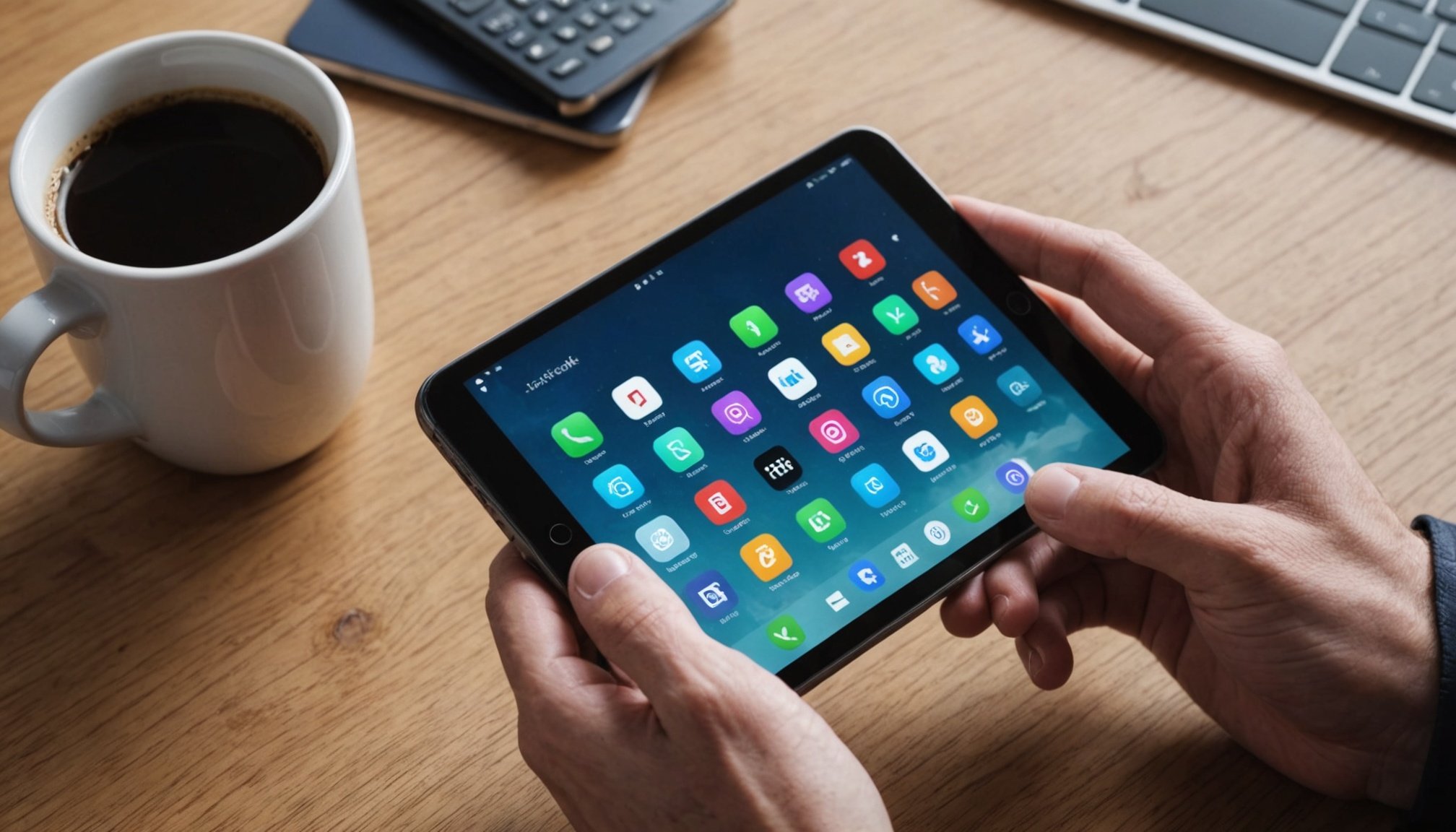The Rise of Smartphone Usage in the UK
Smartphone adoption in the UK has experienced a significant upsurge over the past decade. Recent mobile device statistics UK reveal that over 90% of adults now own a smartphone, highlighting the pervasive role these devices play in daily life. This widespread adoption is not uniform; younger demographics, particularly those aged 18 to 34, show near-universal usage rates, while adoption among older age groups continues to grow steadily.
The influence of smartphones extends beyond personal use, acting as a powerful engine for the digital transformation UK is undergoing. These devices facilitate access to online services, digital payments, remote working tools, and social connectivity, making them indispensable in both professional and social contexts. As a result, businesses and public services increasingly prioritize mobile-friendly platforms to meet the demands of a smartphone-centric population.
In the same genre : What are the top UK smartphone brands for seamless computing?
Understanding mobile device statistics UK is essential for grasping how digital trends shape economic and societal developments. For instance, the surge in smartphone adoption UK correlates with rising engagement in e-commerce and digital media consumption, further driving innovation in app development and internet infrastructure. This ongoing transformation positions the UK as a leader in embracing mobile-driven digital evolution.
Shifts in Internet and App Consumption Patterns
Mobile internet usage in the UK has seen a remarkable growth, significantly outpacing desktop traffic over recent years. This shift reflects broader changes in how users access online content, with mobile devices becoming the primary gateway for internet browsing. Reports indicate that mobile internet traffic now accounts for more than half of all web usage in the UK, underscoring the dominance of smartphones and tablets in daily digital activities.
Also read : How Can Smartphones Impact Environmental Sustainability?
App usage statistics reveal a strong preference for social networking, entertainment, and messaging apps among UK users. Applications like social media platforms and streaming services consistently rank as the most popular, reflecting consumers’ desire for instant communication and on-the-go entertainment. This trend also points to how app ecosystems are shaping user engagement differently compared to traditional websites.
Mobile browsing trends demonstrate distinct changes in behaviour, including shorter session times but increased frequency of visits. Content consumption is increasingly tailored to quick, accessible formats, such as videos and brief news updates optimized for smaller screens. These shifts highlight the importance of mobile-friendly design and efficient app interfaces to meet evolving user expectations in the UK market.
Impact on PC and Laptop Sales and Usage
As smartphone usage continues to rise dramatically in the UK, there has been a noticeable decline in PC sales UK and laptop trends. Consumers increasingly prefer the convenience and portability of smartphones, causing a shift in traditional device use. This device substitution effect means many users now opt for smartphones to perform tasks once done exclusively on PCs or laptops.
In households, smartphones frequently replace PCs for everyday activities like browsing, social media, and streaming. The laptop trends UK also reflect this change as fewer users invest in larger, less portable machines unless needed for professional or specialized use. Workplaces, however, often maintain a stronger reliance on PCs and laptops for productivity, though some roles have begun integrating smartphones as complementary tools.
Understanding this substitution effect highlights how evolving consumer preferences impact overall market dynamics. While PC sales UK decline, manufacturers adapt by emphasizing hybrid devices or more powerful laptops catering to specific user needs. This shift underscores a broader transformation in how technology fits into daily life.
Emergence of Mobile-First Computing Trends
In the UK, mobile-first strategies have surged as businesses recognize the crucial need to engage users primarily on their smartphones. This shift stems from the undeniable rise in internet access via mobile devices, prompting companies to prioritise mobile-friendly services. With more consumers browsing and shopping on the go, brands are crafting websites that load quickly and function seamlessly on smaller screens.
A core component of these strategies is the implementation of responsive design, which ensures that websites automatically adjust to different screen sizes without losing usability or aesthetic appeal. This adaptability enhances the user experience by maintaining easy navigation and clear visuals regardless of the device being used. As a consequence, businesses adopting responsive design see increased customer retention and higher conversion rates.
Moreover, mobile-first computing is profoundly influencing e-commerce and online behaviour in the UK. Shoppers increasingly expect effortless mobile interactions, from product discovery to checkout. Retailers responding with mobile-optimised websites experience smoother transaction flows and reduce abandoned carts significantly. The trend is clear: mobile-friendly services are no longer optional but essential for competitive presence in today’s digital marketplace.
Implications for Businesses, Consumers, and Technology Development
Understanding consumer behaviour in today’s mobile-first world is essential for crafting an effective business strategy UK companies increasingly adopt. Businesses now prioritize seamless mobile experiences, recognizing that consumers expect fluid, responsive interactions at every touchpoint. This shift influences how companies design apps, websites, and even customer service channels.
The rapid evolution of mobile technology innovation acts as both a driver and a response to these changing expectations. Cutting-edge developments such as augmented reality features, faster connectivity, and personalized content delivery shape the digital landscape on which businesses compete. Companies integrating these innovations can differentiate themselves, enhancing user engagement and satisfaction.
For consumers, these trends mean improved access, convenience, and tailored experiences across their devices. Businesses that fail to evolve risk losing relevance in a market where mobile computing trends dictate purchasing decisions and brand loyalty. Embracing mobile technology innovation aligns business strategy UK with contemporary consumer demands, creating opportunities for lasting growth.
Expert Analysis and Forecasts for the Future
In the realm of technology trends UK, industry forecasts UK reveal that mobile computing will continue to dominate the landscape. Mobile computing experts emphasize the increasing reliance on smartphones not just for communication but as comprehensive computing devices. This shift is expected to influence hardware development, software innovation, and user behavior profoundly.
Predicted future shifts include enhanced integration of smartphones with cloud services, enabling seamless access to data and applications anywhere in the UK. Experts also highlight advancements in 5G and edge computing as critical drivers, transforming how industries like healthcare, finance, and retail operate within this mobile-driven ecosystem.
To stay ahead in such a market, businesses and individuals must focus on adaptable strategies. This involves investing in mobile-optimized solutions, fostering expertise in mobile security, and embracing continuous learning to keep pace with evolving technology trends UK. Mobile computing experts advise that anticipating user demands and technological capabilities will be essential to maintaining competitive advantage in the evolving UK industry forecasts.




